13. Intimacy (2001, Patrice Chereau)
Won over: Hallström’s “Chocolat,” Martel’s “La Ciénaga,” Tornatore’s “Malena,” Soderbergh’s “Traffic,” Nichol’s “Wit,” Van Sant’s “Finding Forrester” and Boorman’s “The Tailor of Panama”
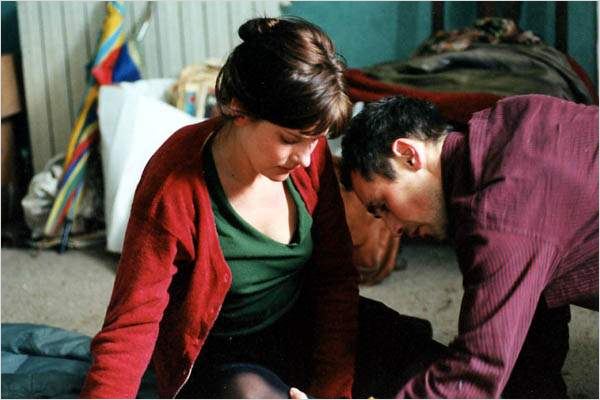
An international co-production with studios from France, the U.K., Germany and Spain, a French director, a Pakistani novelist, English protagonists, and an American rock singer play supporting roles. All of this and much more is “Intimacy,” the first Golden Bear winner of the 21st century.
The story is simple: a man and a woman meet every Wednesday at his home and have sex on a mattress on the floor, exchanging very few words. And then next Wednesday, the same.
When Jay, the man, realizes that this mere corporal contact implies intimacy, that he has fallen in love, he starts following the woman who doesn’t know even the name of to discover an awkward truth.
A strange movie that penetrates the very personal realm of understanding and showing our feelings. And it questions whether sexual intercourse can be deprived of all the emotions that arise when two bodies touch one another.
The answer this film gives is No. A purely ephemeral weekly intercourse let escape despair, alienation and search for love and understanding by both lovers.
12. Grbavica (2006, Jasmila Zbanic)
Won over: Winterbottom’s “The Road to Guantanamo,” Miller’s “Capote” and Altman’s “A Prairie Home Companion”
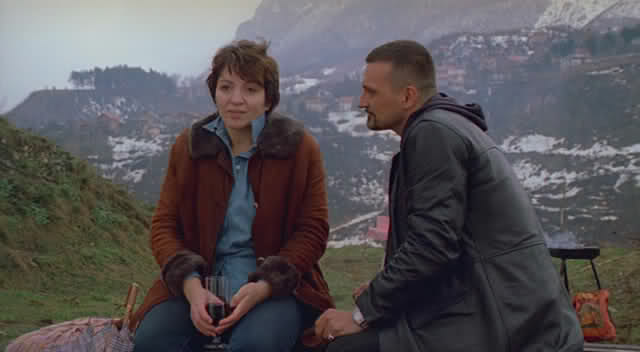
The 32-year-old Bosnian director Jasmila Zbanic gains with her first feature Berlin’s Golden Bear. As Yugoslavian trauma was still open – Germany’s air force participated in the bombing of Serbia in its first military activity since World War II, causing strong reactions in German society – the Jury of Berlinale awards a story coming from the most suffered European city at the end of the 20th century: Sarajevo.
The title of the movie is given by a neighborhood of the city, one of the most traumatized ones. The protagonists are a single mother, who tries hard to make ends meet, and her teenage daughter, who believes she is the child of a war hero. Each of them has to face the consequences of war that has changed the city landscape and their lives forever.
Another harsh coming of age movie set in a difficult social condition, this award was a rather political than artistic decision as it deals with a haunted subject: the mass rapes of Bosnian women by Serbian army during the civil war.
11. Tuya’s Marriage (2007, Quan’an Wang)
Won over: Ozon’s “Angel,” Chan-wook Park’s “I’m a Cyborg, But That’s OK,” Petzold’s “Yella,” Dahan’s “La Vie en Rose,” De Niro’s “The Good Shepherd” and Soderbergh’s “The Good German”

Directed by a Chinese director of the ‘sixth generation,’ this film is set in the desertificated zone of inner Mongolia. Tuya is a young woman with two children, married to an older and disabled man. Though tough and strong, she finds it hard to manage alone with their herd in a place where the lack of water makes things really difficult.
With the consent of her husband, she gets divorced and tries to find another man who will take care of her, her former husband and the children. Some men are interested and she tries to make a decision together with her former partner. And then comes love… only too late.
An unconventional love story in an unconventional setting under unconventional conditions. Wang’s film manages to transpire Steppes’ atmosphere, the endless, unfriendly horizon, and the struggle people give to surviving, and he built a story of genuine love and caring.
10. U-Carmen eKhayelitsha (2005, Mark Dornford-May)
Won over: Rothemund’s “Sophie Scholl – The Final Days,” Audiard’s “De battre mon Coeur s’est arrête,” Weitz’s “In Good Company” and Anderson’s “The Life Aquatic with Steve Zissou”
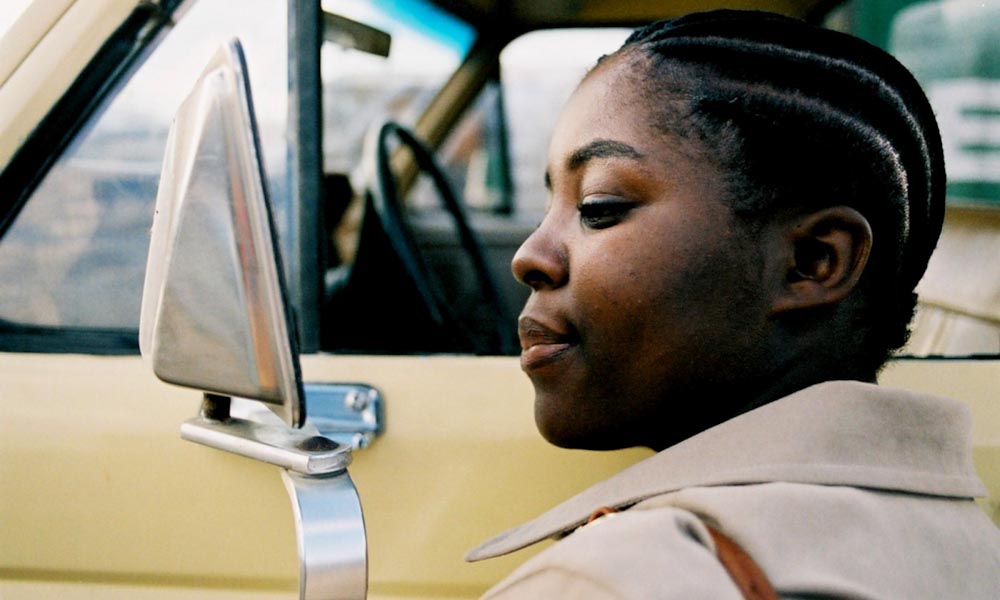
After Saura’s “Carmen,” here we are with an excellent yet unknown adaptation of Bizet’s famous work. And what an adaptation! The opera is entirely translated in the Xhosa language, performed by members of the South Africa Theater Company, combined with local rhythms and dances in a perfect harmony.
The story, quite known is set in Khayelitsha township of Cape Town. Carmen is a round, audacious cigarette worker who comes into trouble with a coworker and is caught by a soldier, whom she seduces and he sets her free. When he goes back to find her in the slums, he gets involved with a group of drug dealers and, blinded by his love, he chooses the way that will end with his total destruction.
Opera and popular culture, an eternal cursed love story, and the reality of South African shanty towns all create a magnetizing movie that breaks many Western aesthetic standards, and yet depicts Carmen as a rebellious young African woman fighting for her emancipation in a hierarchical, man-led society, rather than the femme fatale we used to identify her as.
9. On Body and Soul (2017, Indikó Enyedi)
Won over: Potter’s “The Party,” Kaurismaki’s “The Other Side of Hope,” Lelio’s “Una Mujer Fantastica” (Oscar winner for Best Foreign Language Film)
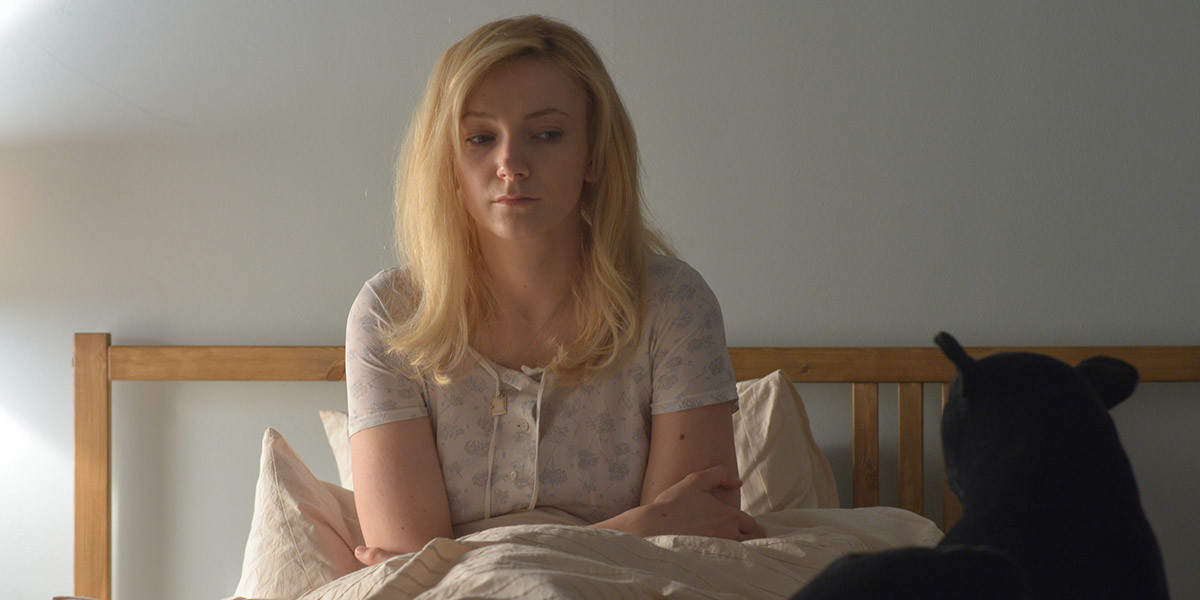
In this film that made her internationally known, Enyedi tells us a very interesting, different story of love based on psychoanalysis. It is a story about disabilities and how to overcome them. It is a story about learning to face reality through dreams.
Endre is chief financial official in an abattoir. He is a handsome man, though he has a lame left hand. Maria is a pretty young woman who comes to work as an inspector and she is quickly unpopular due to her weird behavior and her obsession to stick to details and to find defects in the meat. Endre tries to befriend herm but it proves that she is awkward while relating to others and makes uncomfortable remarks, though she seems she doesn’t want to.
When mating powder is stolen, a psychologist comes to the abattoir to help with the investigations. While examining the personnel, she asks them what they dreamt of the night before and she finds out that both Endre and Maria narrate the same dream: they were a couple of deer, Endre the male and Maria the female, and they were playing love games through the woods. The psychologist believes that they mock her and she brings both of them to her office. There, they realize that they do meet in their subconscious and they try to become a pair in real life. Which is not that easy.
One is physically crippled and the other mentally crippled – Maria is autistic, as we come to know through her reactions, and she is constantly learning how to feel and behave – but the disability is not seen as a deficiency and rather a way to perceive reality through a different prism.
The originality of the script is enforced by striking and controversial images, such as the deer running free in the forest and the cows being hung and slaughtered in the abattoir (there were people coming out of the theater considering vegetarianism), the wild life against domesticity, disability against adequacy, dreams against reality.
8. In this World (2003, Michael Winterbottom)
Won over: Lee’s “25th Hour,” Jonze’s “Adaptation,” Becker’s “Goodbye Lenin,” Zhang’s “Hero,” Clooney’s “Confessions of a Dangerous Mind,” Coixet’s My Life Without Me,” Parker’s “The Life of David Gale” and Daldry’s “The Hours”
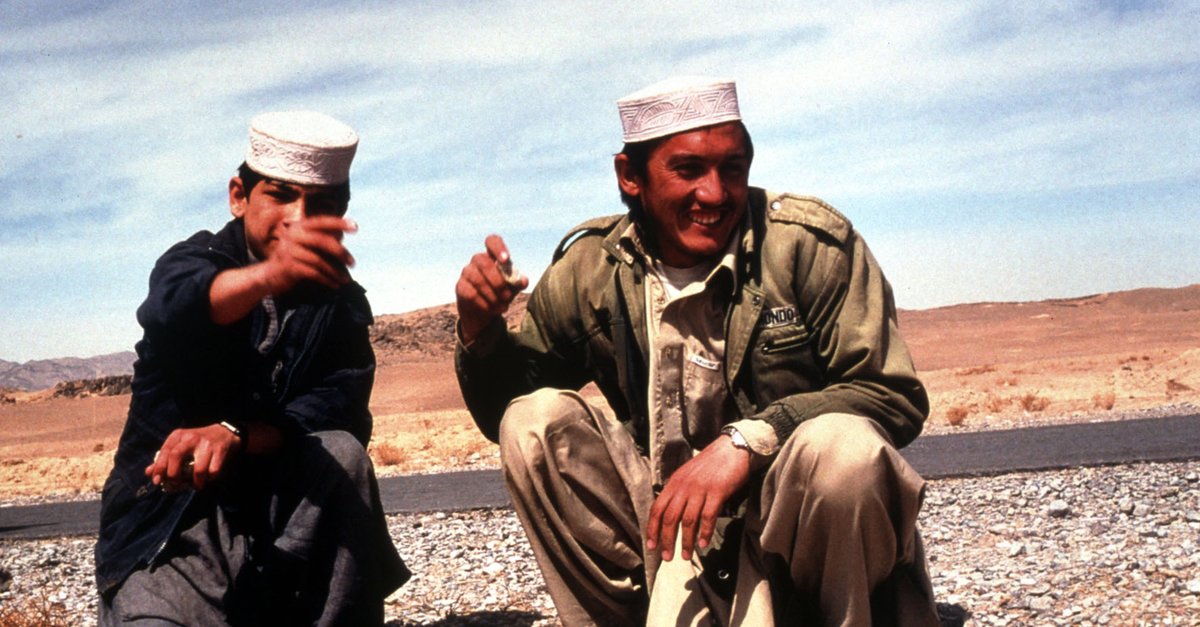
One may wonder how come, with all these excellent movies, how it was this film that left Berlinale with the Golden Bear. A very low budget docudrama that, while not a masterpiece in cinematography, direction or editing, manages to do the unbelievable: it lets life write the script of the movie.
Winterbottom follows two young Afghanis on their trip from a refugee camp in Pakistan to England. Many countries, many frontiers in both the land in the sea, many people, a lot of money paid to make this journey possible, a lot of dangers.
Filmed in a documentary way, Winterbottom uses non-professional actors who practically play their one life as part of the story, and he portrays the adventures of thousands of our fellow compatriots on planet Earth who take great risks to arrive in what we love to call ‘the civilized world.’
It was about time that this route – the ‘Silk Road,’ as he named it when shooting, trying to convince the authorities that he was doing a documentary about silk commerce – was revealed with all its ugliness. It was high time that we faced the facts about where these people come from. And why. Little odysseys that surround our world.
The film tries to avoid melodrama and stay close to reality as a documentary, but one cannot pass the moments of genuine emotion that a feature may offer, like the one that Jafar leaves the camp with his little brother, whom he’ll never see again, running behind him.
7. Bal (2010, Semih Kaplanoglu)
Won over: Serban’s “If I Want to Whistle, I Whistle,” Kervern’s “Mammoth” and Polanski’s “The Ghost Writer”
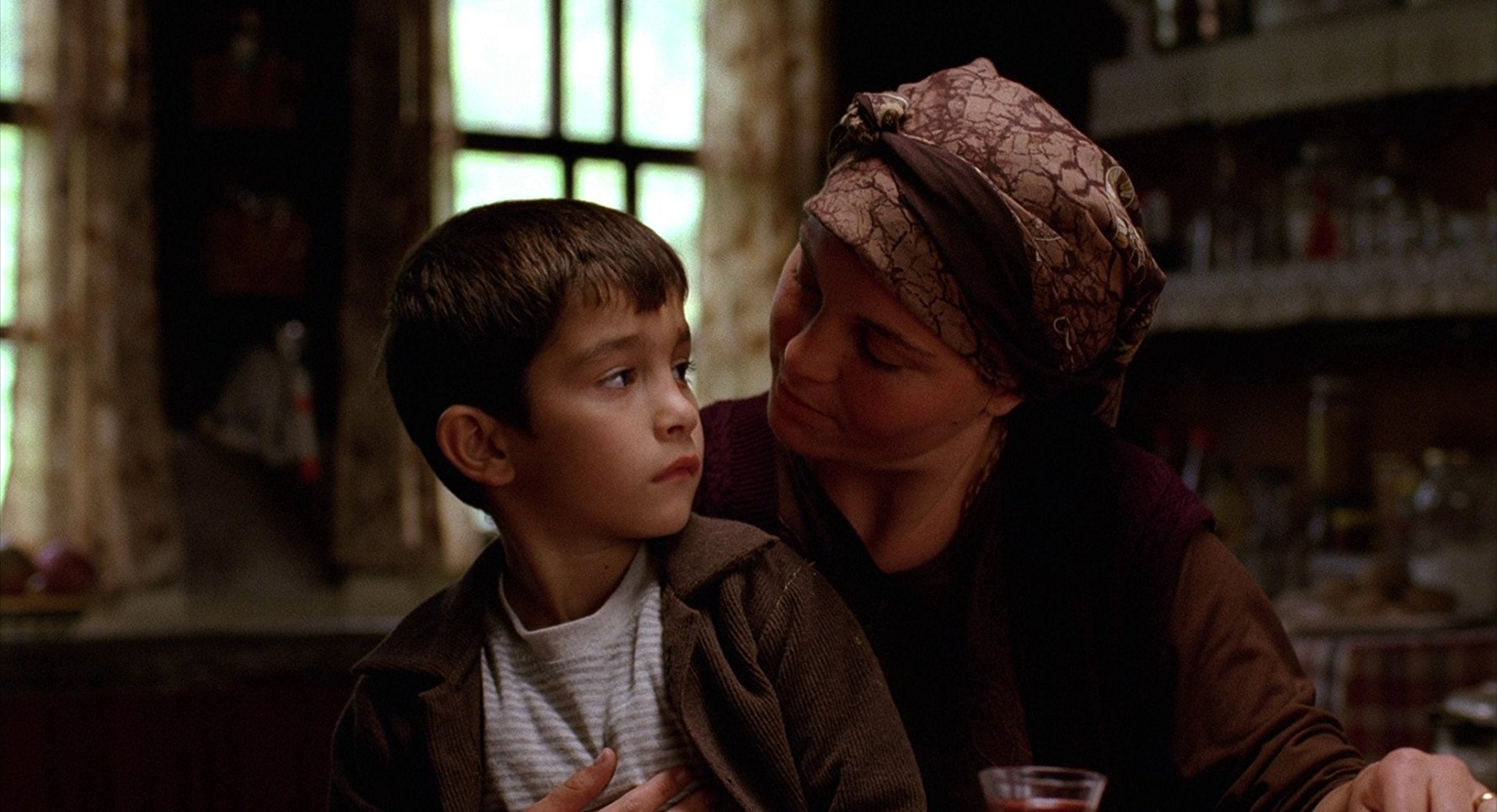
It came as a surprise. The third part of Kaplanoglu’s autobiographical trilogy on Yusuf won the Golden Bear in Berlin (the other two parts, “Egg” and “Milk,” didn’t win the golden medal in Cannes and Venice).
Kaplanoglu goes back to the early days of his life, in a remote village lost somewhere in the mountains of northeast Turkey, that were marked by his father and his sudden death. A simple story about a young boy who’s very timid with the others, who trusts only his father, thus he can only read in his presence. A house hidden in the forest. A nature of powerful beauty that drives the lives of people.
It is a silent movie with minimal dialogue, but with stunning cinematography that speaks for itself. Or rather it is the forest that mostly speaks. This magical world is seen through the eyes of the child. Children play a totally different role in those societies; they are mostly treated as equals with the seniors.
Yusuf’s face carries a serious and sorrowful expression unknown to the images of childhood the Western world shares – and that may lead them to consider him unattractive. Maybe they don’t notice his big eyes that absorb everything around him.
Kaplanoglu dives deep into his childhood to discover the forgotten charm of an untroubled pace of life, of daily labor outdoors; he seeks the whispers of the forest and its beings and let them be his only soundtrack.